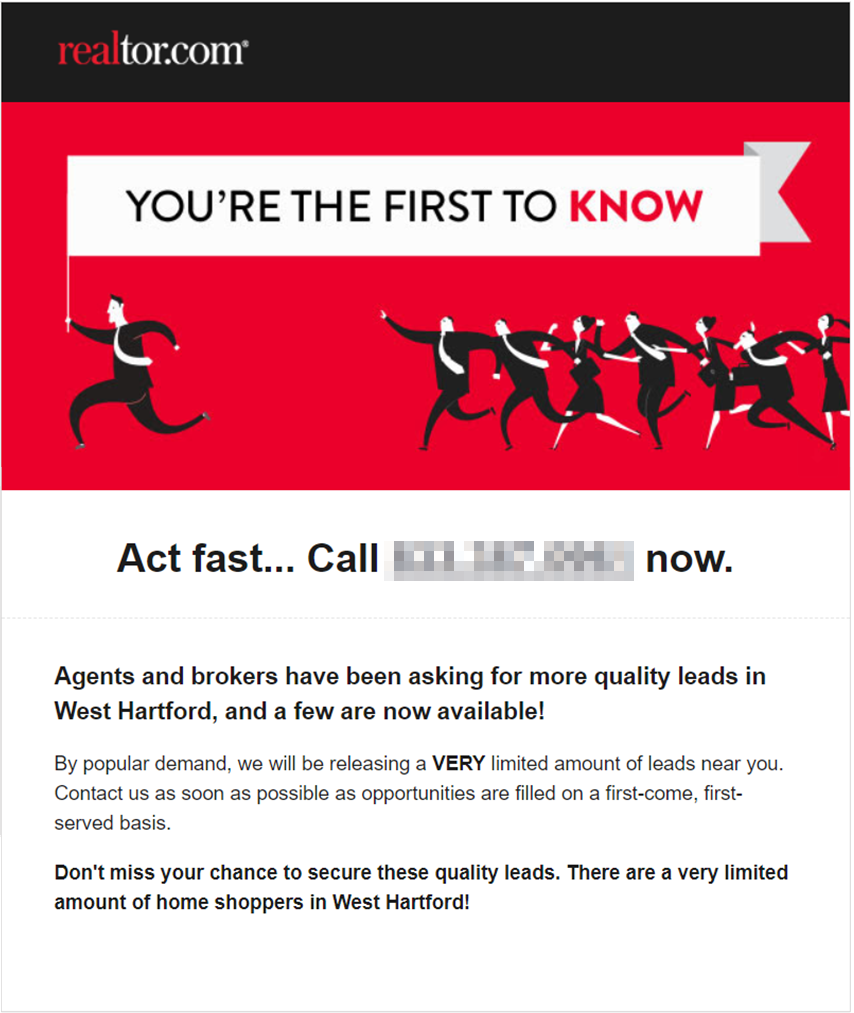There is an active market for leads in real estate, though the economics are generally hidden from the public. I thought it would be a good idea to shine a light on this corner of the industry so that you can understand how it all works. Start with Part 1 if you are just joining us.
Paid leads are opportunities that an agent purchases from a 3rd party, usually an app/website. The general agreement is that each month the agent pays for a fixed number of leads in their preferred geography.
The easiest way to understand Paid leads is to consider a national company like Zillow or realtor.com. Both have a large amount of traffic, but neither has any agents to respond to inquiries from their platform’s visitors.
Zillow and realtor.com both have programs where agents can pay to advertise and receive a certain number of leads from their preferred zip code. There are hundreds of other real estate sites that also monetize their users by selling leads to agents.

We’ve bought Paid leads from the larger companies in the past. The process has varied over time as the lead sellers try out different strategies to connect the agent and potential client. At the most basic level the company provides a name, contact information, and a property address to the agent. From there it is up to the agent to decide how and when to connect with the potential client.
My experience with Paid leads is that the person inquiring about a property and the agent usually have different expectations and goals, which results in frustration on both sides.
The person inquiring is usually looking for information about a property and are not looking for an agent to hire. They expect the agent they are put in touch with to have the information they seek and to answer their questions.
The agent, on the other hand, is focused on determining if the client is a viable business opportunity. The goal is to get the lead to hire them, so the logical priority is to agree to anything that gets you in front of the potential client with a contract and the leverage to get them to sign.
One of my clients told me about his experience with a local agent who gets a lot of Paid leads through Zillow. This agent’s strategy is apparently to encourage showings, and then when standing in from of the property demand that the potential buyer sign a long-term contact covering the whole state if they want to go inside the house. The agent didn’t provide the contract in advance to review, or even give this guy a heads up that he would be asked to sign.
I approached Paid leads from the other direction by answering questions and providing full disclosure. If someone wanted to see a home (and I wasn’t the listing agent) then I told them they had to hire me as a buyer’s agent and provided a reasonable contract to review before they agreed to the showing. I obviously had a lower conversion rate, but found that some people appreciated the approach.
Companies selling Paid leads represent that the agent they connect their users to is the best option for getting real estate help, whether that is answering questions or more. The companies have essentially come up with a clever way to get agents to pay for the privilege of being their front-line customer support.
Paid leads can be a win-win for the agent and the website, but the public rarely understands the situation they are getting involved in.
Continue reading this series with Part 3: Contingent Leads.